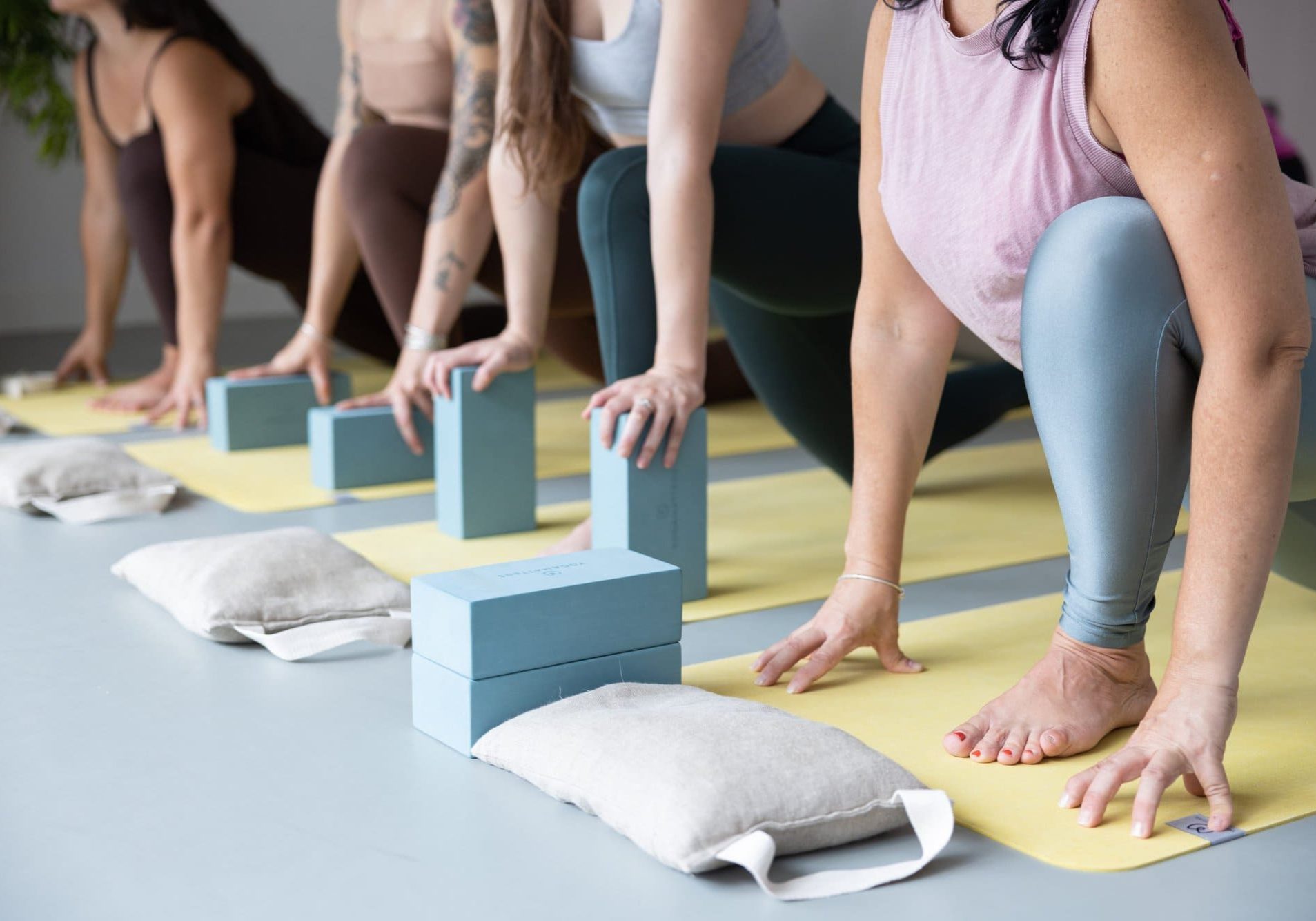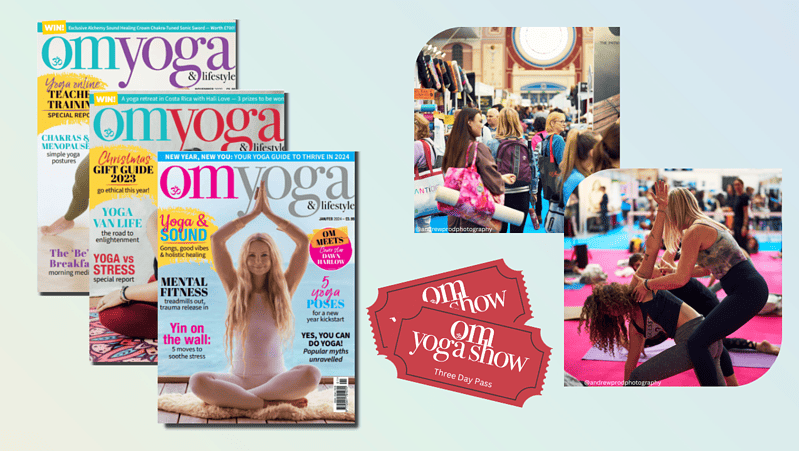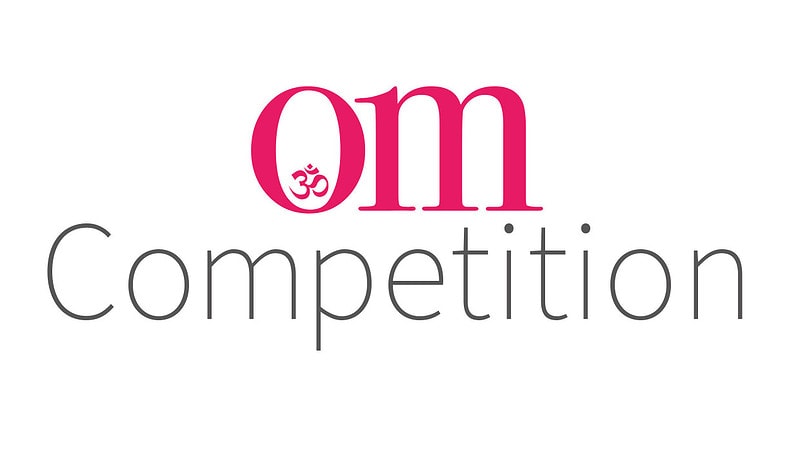
Props, Yoga & Community Care
Reimagining Props in Yoga: Challenging Ego, Fostering Inclusivity, and Embracing Playfulness - By Renee Jones and Sol Jaureguibeitia
Reading time: 5 minutes
Yoga is as much the study of the relationship to the self as it is an investigation of how we interact with the world around us.
For most teachers, props aren’t always an aid and never carry -or certainly should never carry*- judgement.
*As for those teachers that, within a vast philosophical & spiritual practice, attribute moral value to props, that’s a separate conversation for another time.
In my practice and my teaching, and that of many other teachers of different schools, props are simply an invitation.
An opportunity to support or enhance the experience within a pose, with the intention to give a deeper understanding of the pose and the expression that best serves each body. If you disagree: isn’t any novel exploration of a pose a deeper understanding already? What do you fear for yourself and your practice? Which part of you shuts down the layers of complexity both added and removed by props?
While those questions brew in the background, let’s take a step back and think about the practice of yoga in a led class environment. As much as yoga is an individual practice it’s also often a collective one, and how we conduct ourselves in a class can and will impact the space held for everyone in the room at an individual and community level.
If your instinctive reaction when props are laid out and offered in a class is to reject them, take this as an invitation to re-evaluate your relationship with yoga, asana, and the many ways the ego can turn tiny inanimate objects into unjustified enemies.
If that sparks your curiosity, here is something that might help you re-frame how you perceive props so you may approach them in a different way in the future:
If you find yourself asking the teacher what each prop is for in advance; expecting them to detail the sequence and variations in advance so you can preempt to exclude them; straight up refusing to grab props.
Ask yourself instead: why do I believe I need all this information in advance? Will it support my yoga practice or only provide food for judgement before I have experienced this practice? Does it contribute to or disturb the group practice? Could I learn something new today?
Aim towards…Trusting the teacher knows what they are doing, and staying curious.
Being playful can be hard. Working with props against your existing tendencies and habits can be hard. (If that’s not your experience based on contemporary vinyasa, try an Iyengar practice). Take advantage of being playful and experimental within a dedicated space, guided by an experienced teacher and supported by the rest of practitioners sharing the space.
If your inner narrative still resists any change, give it time. If you have extensive experience working with props and have made the informed decision through lived experience that they are absolutely not for you, ever, still understand that certain behaviours can shift the energy in the whole room and be disrespectful of others.
Remember you always have full autonomy of your yoga journey, but autonomy over your own practice does not equate entitlement to jeopardise others’ experiences. Especially if you are body abled and broadly catered to in contemporary yoga classes, there is important work to do and skills to be developed in finding ways of honouring your practice without centering it above everyone else’s.
- Monopolising a teacher’s attention with questions while they work to prepare the space, lead the class and check in with individuals who may be working with injuries etc is oftentimes unreasonable.
- Refusal to grab props at the start often results in disrupting later on when your ability to follow the class is hindered.
- Dividing the teacher’s attention in an attempt to receive alternative queuing to adapt to your practice without any props centers your practice above all others’, and adds confusion for those working with props
- A dogmatic refusal of props fosters a divisive and competitive environment where there is a perceived hierarchy that the less props you use the more advanced you are.
These four examples describe behaviour that is ableist and exclusive.
Not every yoga class will be for you, and that is okay. Even when they are not, a personal dislike of props is no justification to bring ableist and exclusive behaviour to the mat. This is usually born out of inertia, ego-driven preconceptions of asana ‘expertise’, and the overwhelmingly ableist representation of yoga. Please keep this off the mat - little things like these can silently and powerfully contribute to creating or breaking community care.
Challenge your teacher and the method if you feel called to - by as much as you are willing to challenge yourself. Wherever you are in your yoga practice, a learning mindset to try what’s on offer without judgement or attachment is already part of yoga. Try it! Who knows, we might all learn something together!







